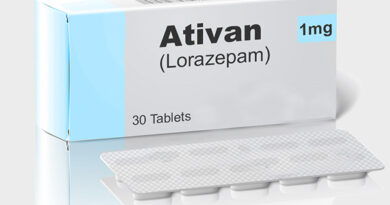Foods That Increase the Body’s Blood Production
If you are interested in increasing your body’s blood production, there are certain foods you can include in your diet. They can provide you with a variety of nutrients, including Vitamins B12 and B6, calcium, magnesium, and potassium. In addition, they help keep your organs healthy and functioning properly.
Carrots
Carrots are rich in antioxidants, minerals, and vitamins. They improve the overall health of the body, boost the immune system and fight against harmful bacteria. In addition, they have been shown to lower blood pressure.
Several studies have shown that carrots may play a role in reducing the risk of heart disease. Some studies suggest that phenolic compounds in carrots inhibit the oxidation of LDL cholesterol. Another study suggests that a high-fiber diet may decrease the risk of cardiovascular disease.
Studies have shown that consuming carrots and carrot juice decreases the production of plasma malondialdehyde. A decrease in plasma malondialdehyde is associated with increased antioxidant status. But, more research is needed to determine if the quantity of carrot juice consumed can affect the amount of plasma malondialdehyde.
The goal of the present study was to evaluate the effects of fresh-squeezed carrot juice on lowering cardiovascular risk markers. Blood pressure and body fat percentage were assessed as well as the levels of blood glucose, insulin, and interleukin-1a.
A meal consisting of stir-fried carrots was used in this study. Stir-fried carrots were found to have a higher bioavailability of b-carotene than raw carrots. Approximately 75 percent of the b-carotene content of the carrots was estimated to be absorbed when the carrots were stir-fried.
The retinol fraction was extracted from the hexane washes of the samples. It was then hydrogenated for GC-MS analysis.
Fish
There’s no denying that the best way to keep your arteries in tip-top shape is to eat more fish. Studies show that the average fish has a lower resting heart rate than its carnivore counterparts. The good news is that you don’t have to eat a ton of fish just to feel better about yourself. Aside from the fact that the seafood you choose is likely to be higher in omega-3 fatty acids, it’s a low-cost and low-fuss way to stay happy and healthy. Besides, there are many different types of fish to choose from, including sushi, sashimi, and adobo. Not only will you feel sexier eating fish, but you’ll also be a much healthier you as a result. Of course, there are other benefits to choosing the right type of fish, such as a reduced risk of cardiovascular disease, better sleep, and a general feeling of overall well-being.
Dairy products
Milk and dairy products are widely consumed and offer a range of nutrients, including proteins, fat, calcium, phosphorus, potassium, and vitamins. They also contribute to the body’s blood production.
However, the relationship between milk and dairy intake and health has not been fully investigated. Some studies have found an inverse association between milk and dairy intake and the risk of cardiovascular diseases, but most have concluded that these associations cannot be causal.
In addition to this, studies have not established whether milk and dairy intake are associated with an increased risk of some cancers or a reduction in mortality. Currently, a growing body of literature investigates the impact of milk and dairy products on cardiovascular and metabolic diseases.
For instance, researchers examined the association between dairy consumption and the development of type 2 diabetes. The study reported that higher dairy intake during adolescence was associated with a lower risk of developing diabetes.
Another study analyzed the impact of dairy intake on breast cancer. In 4697 Finnish women, milk use was associated with a significantly lower risk of breast cancer. A third study, which was conducted in Paris, France, found a reduced risk of metabolic syndrome and cardiovascular disease with greater dairy intake.
In Sweden, the consumption of high-fat non-fermented milk has recently increased. This may reflect the trend in Swedish media and public opinion toward a high-fat diet. But the link between high-fat dairy intake and all-cause mortality remains unclear. Additionally, Cenforce 100 blue pills aid in enhancing blood circulation.
Quinoa
Several studies are showing that quinoa may help improve the body’s blood production. This is especially true in the case of people suffering from prediabetes. People with this condition are at high risk of developing type 2 diabetes.
In a study of 37 overweight men, eating quinoa enriched for 4 weeks lowered blood sugar. It was also found that the consumption of quinoa reduced total cholesterol and triglyceride levels.
Studies also have shown that quinoa has anti-inflammatory properties. The antioxidant content of quinoa also reduces free radicals. These free radicals cause cell damage and may lead to chronic disease.
Another study found that quinoa polysaccharides can suppress fat accumulation in adipocytes. This could be due to its ability to inhibit genes related to inflammation.
Studies also show that quinoa has the potential to increase glucose metabolism in elderly patients with impaired glucose tolerance. For this reason, it is considered a good food for heart disease.
An article published in the Nutrients journal showed that quinoa can help normalize the glucose metabolism of the body. This is particularly important in elderly patients with impaired glucose tolerance.
In addition, quinoa may be able to improve the health of undernourished individuals. However, more research is needed to prove this.
A study of 19 celiac patients found that quinoa reduced triglycerides and total cholesterol. This study also found that the ethanolic extract of quinoa improved the activity of GSH-Px.
Cayenne pepper
If you are looking for a way to improve your heart health, consider adding cayenne pepper to your diet. The spicy spice contains capsaicin, a compound that promotes blood flow and reduces inflammation.
Capsaicin is also known to reduce the symptoms of colds. Its antioxidant properties help to remove free radicals in the body, thereby preventing a wide variety of diseases. In addition to promoting blood flow, cayenne pepper is also a great source of vitamins and minerals.
Cayenne pepper is also a good option for those who are suffering from ulcers. Saliva plays a huge role in our digestive system. It acts as a buffer, diluting sugars that bacteria feed on. This prevents bad breath and foul odors.
Cayenne pepper is also beneficial to your teeth. The spice reduces plaque build-up in the arteries. Also, it increases the amount of saliva in your mouth. This helps to break down food and prevents bacteria from multiplying.
Cayenne pepper is used to treat arthritis and other forms of joint pain. It can also be taken orally or mixed into other foods.
Cayenne can also be used for sinus infections. It is effective against rheumatoid arthritis and osteoarthritis. However, it should be noted that it may cause swelling and irritation in the eyes and nose.
Cayenne is an excellent source of Vitamin A. One tablespoon contains 44% of the recommended daily intake. This vitamin protects the body against free radical damage and improves breathing tract function.
Vitamin B12
Vitamin B12 is needed for the production of healthy red blood cells. A lack of this vitamin can cause anemia, which is a condition where the body does not have enough healthy red blood cells. Anemia can lead to fatigue and trouble walking. It can also cause heart and lung complications.
In addition to producing hemoglobin, vitamin B12 helps the body catalyze various biological processes. It is also responsible for supporting nerve cells. This vitamin is available as an injection or a supplement.
Vitamin B12 deficiency can result in a variety of health issues, including anemia, osteopenia, and neurological disorders. It can affect adults of all ages.
Deficiency can also occur in pregnant women. Pregnant women who have a deficiency may have an increased risk of developing serious birth defects.
Other causes of vitamin B12 deficiency include infection with the Helicobacter pylori bacteria and surgery. Some medications, such as proton pump inhibitors, can reduce the amount of vitamin B12 that is absorbed.
Among the most common causes of anemia are atrophic gastritis, celiac disease, and pernicious anemia. Pernicious anemia is more prevalent in older people and occurs when there is a lack of the intrinsic factor that absorbs and carries vitamin B12 to the intestines.
Several lab tests can be used to assess a person’s vitamin B12 status. These tests can help a healthcare practitioner to diagnose the condition and recommend a treatment plan.
Visit here: medzsite.com



